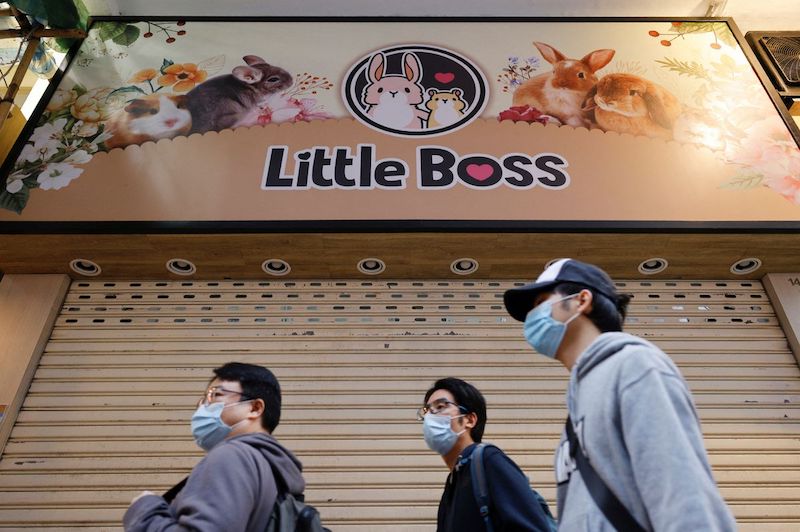Hong Kong’s economy could rapidly deteriorate following the imposition of new restrictions intended to maintain a “zero-Covid-19” policy, analysts warn.
The latest crackdown – including a cull of pet hamsters despite no international evidence for animal-to-human transmission of the coronavirus – is a sign of increasing desperation as Hong Kong leaders seek to appease mainland China policy in hopes of a reopening of the internal boundary.
Hong Kong has also toughened its curbs on incoming cargo flights, while the economy has been further strained by tougher social restrictions imposed since January 7. The closure of bars and gyms and ban on dinners in restaurants were intended to last two weeks but have been extended by another fortnight and face further extensions.
“We expect 0.1-0.2 percentage point downside to our annual growth forecast of 2.4% if the measures get extended by another two weeks,” Bum Ki Son, Asia economist at Merrill Lynch in Hong Kong, said.
“If the outbreak is contained and measures are relaxed within the next two weeks, the implications on growth will likely be marginal,” he added.
Four-Pronged Threat
Bum said Hong Kong faces a four-pronged threat to its economic growth: “Consumption impact from business closures, further delays in border re-opening with mainland China until the domestic conditions stabilise, a trade impact due to the flight schedule rearrangements and air crew quarantines and negative sentiment impact.”
Cliff Zhao, analyst at CCB International in Hong Kong, said Hong Kong’s stock markets are on a “weaker track” while the prospect of rising interest rates could lead to a deterioration in liquidity.
“Hong Kong’s economic outlook is clouded by both rising rates and renewed Covid-19 outbreak,” Samuel Tse, head of Hong Kong research at Singapore-based DBS Bank, said. “[A stricter] flight ban and removal of aircrew quarantine exemption will stress the supply chain.”
Tse said retail sales would take the hardest hit. “Even without the Omicron outbreak, retail sales growth slowed to 7.1% year-on-year in November 2021 from 12.1% in October.”
Durable goods sales growth plunged to 1.2% from 30%, he added. “With the delay in border re-opening, 2022 retail sales growth projection is down from 15% to 10%. “After all, tourist spending accounts for around 30% of Hong Kong’s total retail sales.”
Logistics Costs to Surge
Tse expects logistics costs to surge by 40% within three weeks and the consumer price index is expected to surge to 2.2% in 2022, up from the projected 1.5% of 2021. “This is consistent with the widening spread between trade growth in value terms and volume terms,” he said.
The slowdown in Mainland China’s export-led production will also dampen Hong Kong’s re-export levels. Meanwhile, China’s domestic demand is weakening due to property market correction and renewed Covid outbreak. “These also point to softer import demand from Hong Kong,” Tse said
Hong Kong’s job market recovery is expected to stall, according to Tse. Although the unemployment rate dropped drastically from 7.2% in the quarter ending February 2021 to 4.1% in the quarter ending November 2021, the pace has slowed. “In our best case, it will only drop to 3.3% by end-2022, which is higher than the pre-social unrest level of 2.8%,” Tse said.
The shrinking labour force is even more alarming, he added. “Typically, the workforce should expand during recovery as the rising salary should lure economically inactive persons back to work. Instead, it recorded on year decreases since mid-2019 and fell further by 1.1% year on year in September-November 2021.”
This, Tse added, has translated into a loss of 143,000 workers in the past 18 months, which largely matches the 197,000 net departure figure through Hong Kong International Airport since April 2020.
- George Russell
READ MORE:
Hong Kong Pushes for Asian Investment – The Age
Crypto Ban On The Table In Hong Kong Regulator Probe
Hong Kong, Shenzhen Bourses Sign New Strategic Pact
























